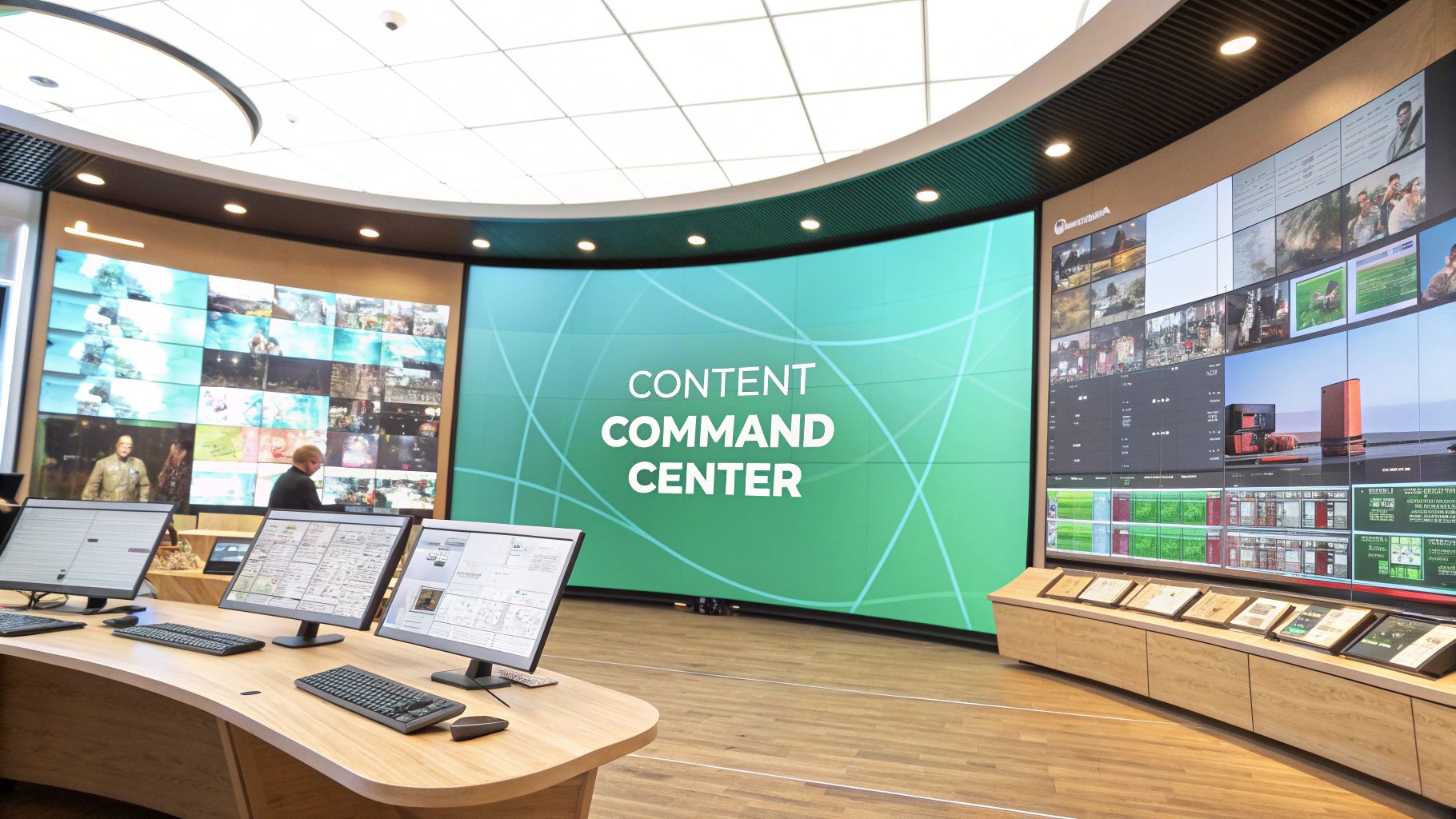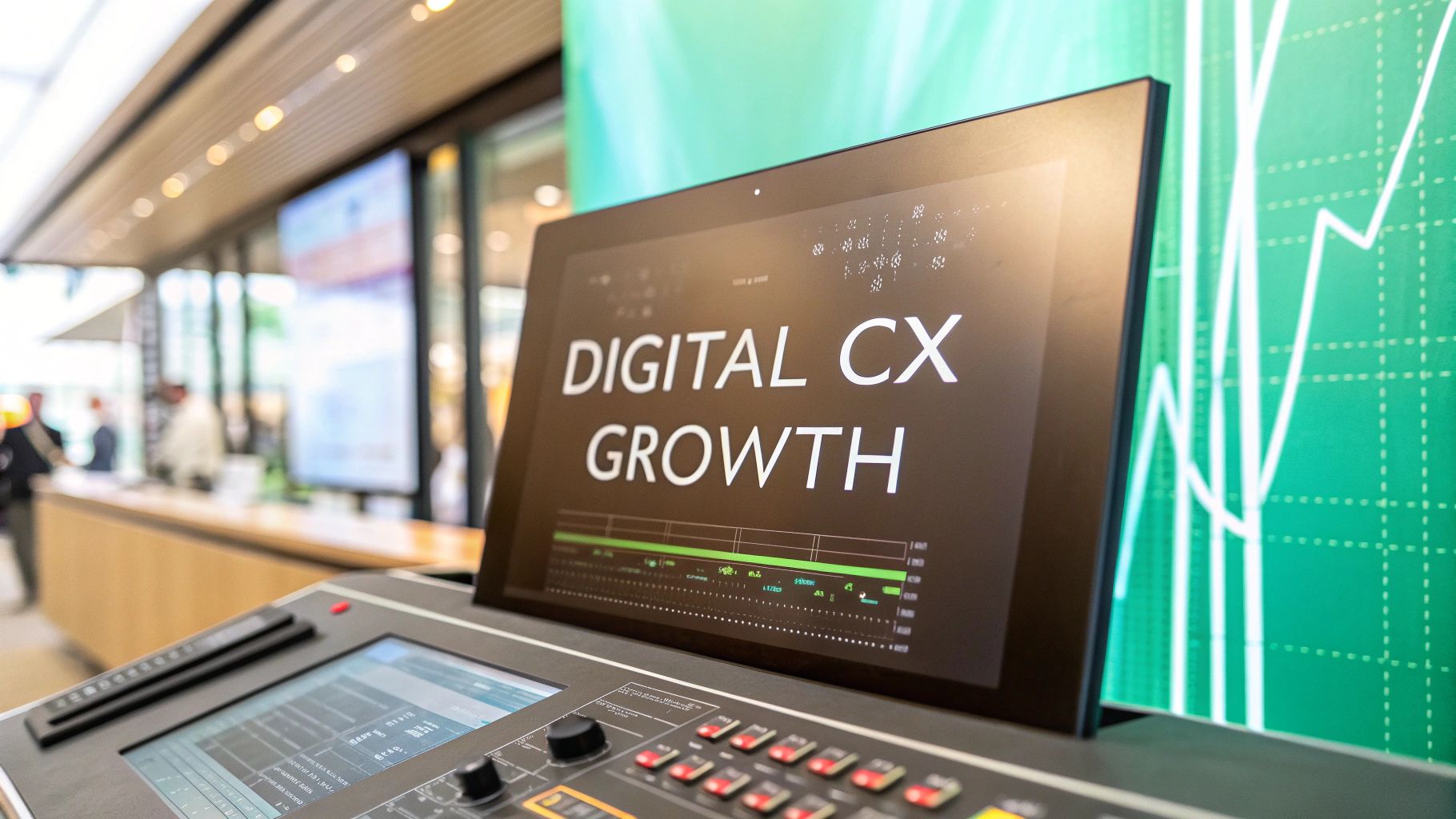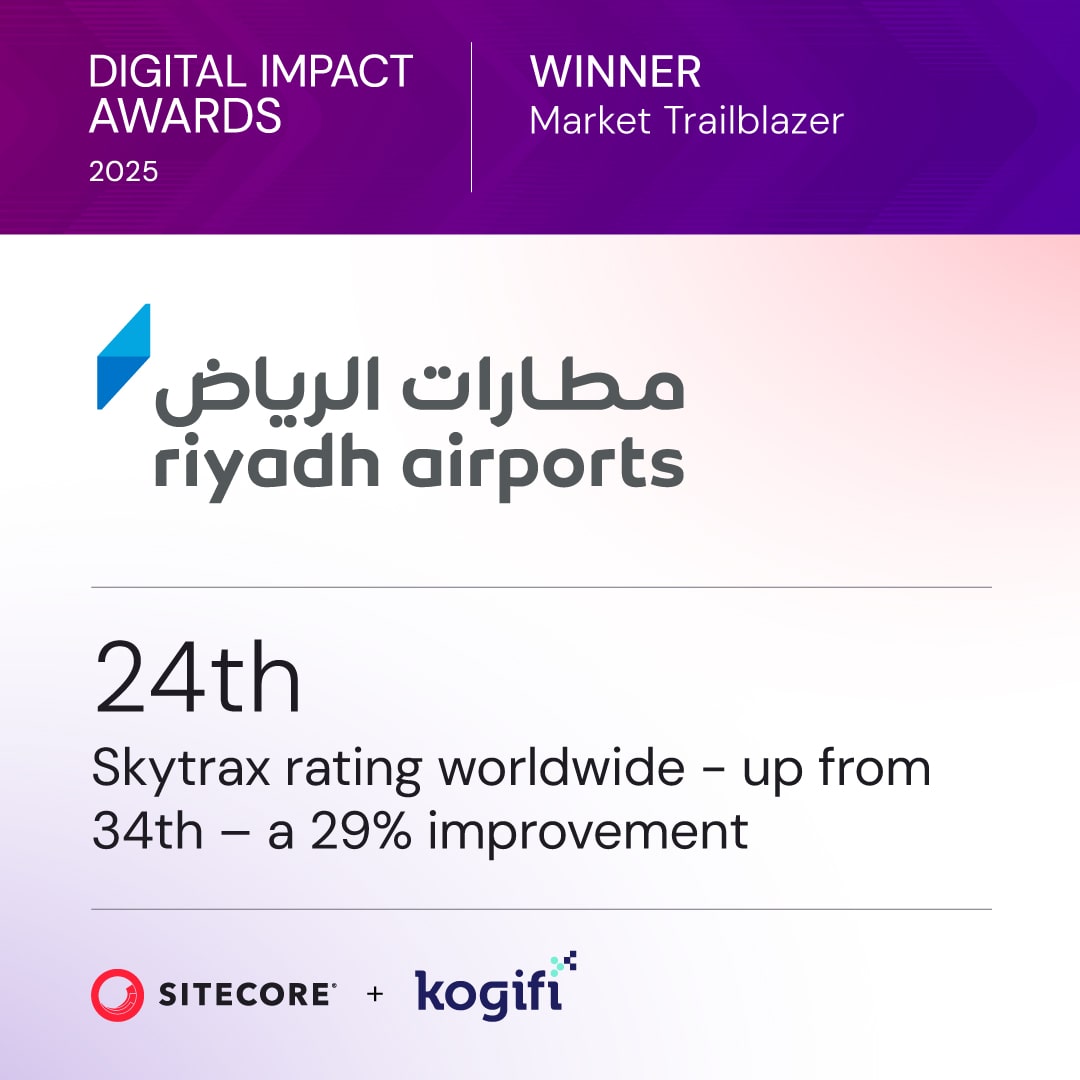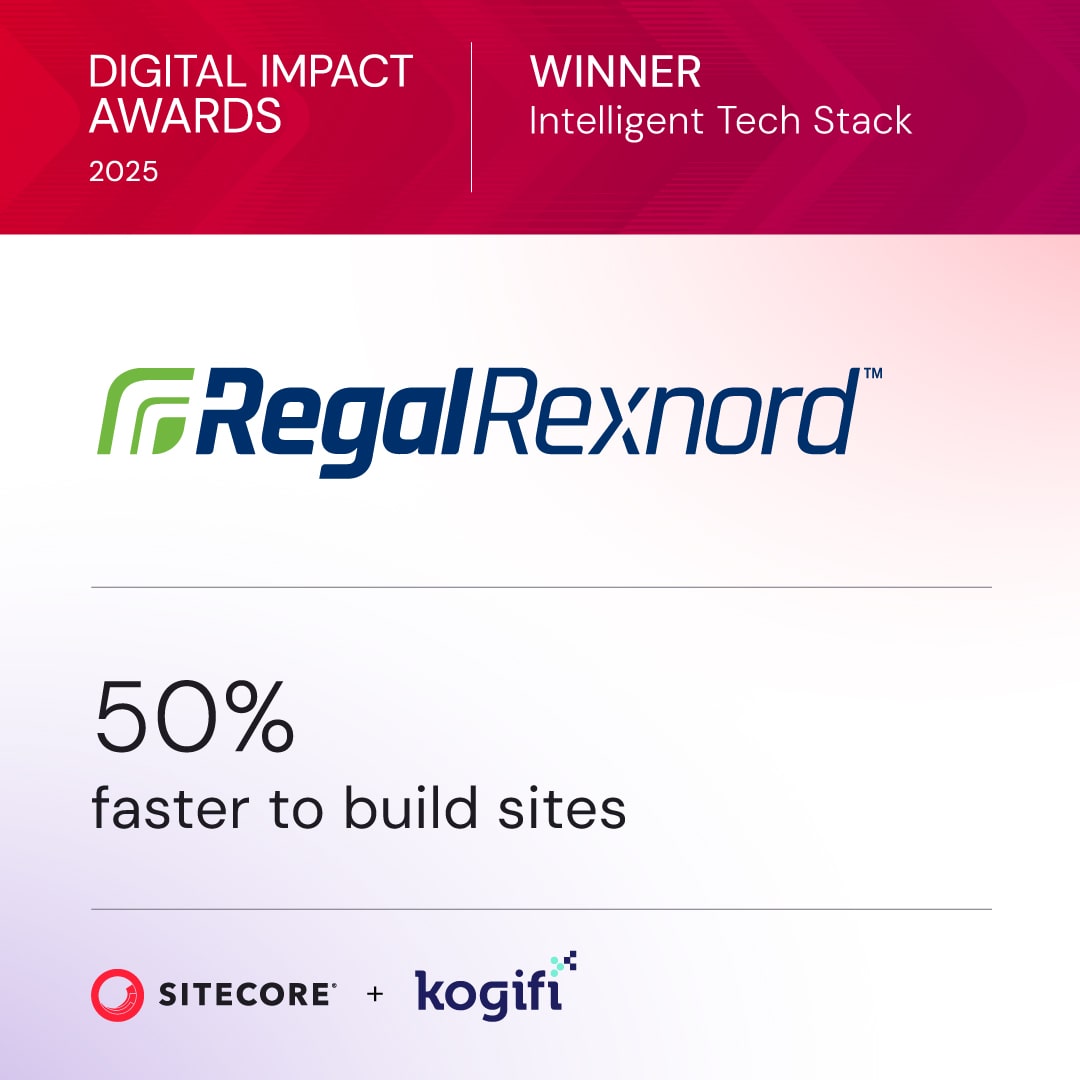Sitecore is a Digital Experience Platform (DXP) that combines content management, digital marketing, and e-commerce tools into one system. It helps businesses create personalized online experiences across multiple channels, improving customer engagement and driving results.
Key Features:
- Content Management: Easy-to-use tools for creating, organizing, and publishing content with multi-language support and version control.
- AI Personalization: Real-time decision-making to deliver tailored customer experiences based on user behavior.
- Multi-Channel Delivery: Headless CMS ensures consistent content across web, mobile, social media, and IoT platforms.
- Integration: Seamless connections with CRM, ERP, and analytics tools for efficient operations.
Why Use Sitecore?

- Boosts engagement and conversions: Examples include Toyota Australia’s 25% increase in conversion rates and JD Finish Line’s 24% rise in search conversions.
- Scalable and flexible: Adaptable to changing business needs with modular features.
- Proven ROI: Many enterprises report measurable success, like Bachman’s 6.31% growth in e-commerce sales.
Sitecore is trusted by 30% of Fortune 100 companies and continues to evolve with AI-driven innovations, making it a powerful choice for managing digital experiences.
What is Sitecore?
Main Features of Sitecore
Sitecore provides powerful tools to manage and deliver advanced digital experiences. Here's a look at its standout features that support enterprise-level needs.
Content Management Tools
Sitecore's content management system makes it easy to create, organize, and publish digital content. It offers features that help streamline workflows and maintain consistency:
- Templates: Pre-designed templates ensure uniform branding while allowing customization.
- Multi-Language Support: Simplifies managing content for different languages and regions.
- Workflow Management: Smooths out the content review and publishing process.
- Version Control: Tracks changes for a full history of content updates.
"With Sitecore, we've expedited web feature development on our Mahindra Auto digital platform, enhancing the customer journey and capitalizing on immersive digital engagement to serve various business opportunities."
– Dhyanendra Bhangre, Head of Digital Engineering, Auto Digital Center, Mahindra
AI Personalization System
Sitecore uses AI and machine learning to deliver tailored customer experiences in real time. For example, WellSpan Health implemented Sitecore XM and Sitecore Personalize to create unified, customized experiences. This led to a 20% increase in new user accounts and better patient engagement.
Key features include:
- Real-Time Decision Engine: Chooses the best content and offers for each visitor.
- Behavioral Analysis: Tracks user actions to refine personalization efforts.
- Automated Segmentation: Builds detailed audience groups based on behavior and demographics.
- Testing Tools: A/B and multivariate testing to fine-tune personalization strategies.
Multi-Channel Content Delivery
Sitecore's headless CMS ensures consistent experiences across all platforms, allowing content to be created once and shared seamlessly across multiple channels.
"Any way that customers engage with Bachman's, be that in-store, via mobile, or the website, Sitecore helps us recognize them, support their journey, improve their customer experience, and build loyalty."
– Chris Moore, Senior Director of Information Technology, Bachman's
Around 30% of Fortune 100 companies rely on Sitecore to create highly personalized web experiences globally. The platform's features include:
- Content Modularization: Reusable content blocks ensure consistent messaging.
- Omnichannel Distribution: Delivers content across web, mobile, social media, and IoT devices.
- API Architecture: Enables flexible content delivery with real-time updates.
- Real-Time Updates: Keeps content synchronized across all channels.
United Airlines showcases these benefits, achieving an 82% improvement in travel experiences and saving $500,000 in total cost of ownership over three years through better data use and personalization.
Benefits of Using Sitecore
Sitecore provides a range of advantages for improving digital presence and boosting customer engagement. Let’s take a closer look at why it’s a strong choice for managing enterprise-level digital experiences.
Return on Investment
Sitecore's platform helps businesses achieve clear, measurable improvements in customer engagement and efficiency:
- JD Finish Line saw a 24% increase in search conversions and a 22% boost in average revenue per customer by improving product merchandising.
- Toyota Australia experienced a 25% jump in conversion rates after upgrading their used car marketplace with a modern digital experience platform (DXP).
-
Bachman's success included:
- 6.31% growth in e-commerce sales
- 11.47% longer website visit times
- 14.63% more new site visits
- 9.92% higher conversion rates
"Sitecore has delivered an intuitive digital experience tailored to individuals throughout the process rather than catering for all." - Dee Reid, Director of External Relations, Leeds Beckett University
These examples show how Sitecore can drive real results.
Growth and Flexibility
Personalized communication is a key driver of business success:
| Customer Behavior | Percentage |
|---|---|
| Expect companies to understand their needs | 76% |
| Consider personalized communication when choosing brands | 76% |
| More likely to make repeat purchases with personalization | 78% |
Sitecore’s modular design allows businesses to scale and adjust as needed. Companies can start with the features they require and expand their capabilities over time, staying agile as markets evolve.
For instance, Sparebanken Vest, a Norwegian bank, reported an 80% boost in productivity using Sitecore XM Cloud’s SaaS-based architecture, which also improved customer satisfaction scores.
System Integration
In addition to driving ROI and supporting growth, Sitecore simplifies operations through seamless system integration. Its API-first approach ensures smooth connections with:
- Customer Relationship Management (CRM) tools
- Enterprise Resource Planning (ERP) systems
- Marketing automation platforms
- Analytics tools
sbb-itb-91124b2
Company Background and Future Plans
Current Ownership
Sitecore, established in 1999, was acquired by EQT Partners on April 1, 2016. The company’s growth trajectory is evident in its funding history:
| Date | Funding Amount | Round | Lead Investor |
|---|---|---|---|
| January 19, 2021 | $1.2 billion | Series C | - |
| December 2011 | $30 million | Series B | TCV |
This funding has fueled Sitecore’s ability to expand its offerings and prepare for its next phase of development.
Development Plans
With a solid financial base, Sitecore is focusing on advancing AI-driven content management, improving digital experiences, and strengthening integration capabilities.
"Sitecore is at an exciting point in its growth as global brands prioritize AI-driven digital customer experiences that extend beyond the website", says Michael Bannon, CFO of Sitecore.
Recent innovations include:
- AI-Powered Content Management: L’Oreal implemented AI-driven meta-tagging across 500 websites, saving over 120,000 maintenance hours in 2023.
- Enhanced Digital Experience Platform: Sitecore Stream, a new addition to their platform, is designed to improve digital experience management. Roger Connolly, Chief Product Officer at Sitecore, notes:
"With Sitecore Stream, we're delivering a smarter, more strategic, and more secure way for marketers to create and manage content and deliver seamless customer experiences".
-
Enterprise Solutions: Large-scale organizations have reported measurable success:
- Mandarin Oriental Hotel Group experienced a 42% increase in new visitors across 36 websites using XM/XP with Sitecore Managed Cloud.
- Thule Group saw a 35% rise in conversions by implementing omnichannel marketing automation across 80 markets.
Looking ahead, Sitecore’s plans include:
- Adding native support for generative AI
- Streamlining the content publishing process
- Improving connectivity within the tech stack
- Expanding AI-driven personalization and automation
- Enhancing cloud-based solutions for better performance
Conclusion
Key Points Review
Sitecore is a versatile Digital Experience Platform (DXP) that reshapes how businesses handle their online presence. Its main strengths include:
- Integrated Digital Tools: Combines content management, digital marketing, and e-commerce to enhance customer engagement.
- AI-Powered Personalization: Uses AI to create tailored experiences while improving efficiency.
- Flexible Multi-Channel Delivery: A headless CMS ensures consistent content delivery across platforms, increasing audience interaction.
These features provide a solid base for effective implementation.
Getting Started with Sitecore
Here’s how to begin:
Implementation Checklist
- Develop a well-defined architecture plan.
- Optimize your environment for performance and cost efficiency.
- Prepare for multi-language support.
- Use Azure PaaS for automated scaling.
- Set up effective HTML and data caching.
- Enable automated deployment processes.
"Collaborating with a digital marketing agency will speed up Sitecore development." - Rightpoint
Content marketing has shown measurable results, with 53% of businesses reporting increased revenue and sales from these efforts. By following best practices and working with experienced partners, you can harness Sitecore's features to drive digital growth effectively.
FAQs
How does Sitecore use AI to improve customer engagement?
Sitecore leverages AI-powered personalization to create highly tailored customer experiences. By analyzing real-time user behavior and data, it delivers content, offers, and recommendations that align with individual preferences and actions.
Key features include predictive analytics to anticipate customer needs and tools that help marketers optimize their personalization strategies. With Sitecore, businesses can dynamically adjust content, pricing, and offers in response to customer interactions, ensuring a seamless and engaging experience for every user.
What are the main advantages of using Sitecore for delivering content across multiple channels?
Sitecore empowers businesses to create and deliver consistent, personalized experiences across a variety of channels, including websites, mobile apps, email, and social media. By centralizing content management, it ensures that your messaging remains cohesive and tailored to your audience, no matter where they interact with your brand.
Additionally, Sitecore's advanced analytics and AI-driven tools help you optimize content delivery, making it easier to engage users and drive meaningful results. This makes it an ideal platform for businesses looking to streamline multi-channel content strategies while enhancing customer experiences.
How can businesses calculate the ROI of using Sitecore's Digital Experience Platform?
Businesses can calculate the ROI of Sitecore's Digital Experience Platform by analyzing key performance indicators that reflect their digital strategy's success. Start by measuring conversion rates, which track how many leads or visitors complete desired actions like purchases or sign-ups. Additionally, evaluate customer acquisition costs (CAC) to understand the total expense of gaining new customers and compare this to the customer lifetime value (CLV), which estimates the total revenue a customer generates over time.
Other important metrics include revenue growth over a specific period and engagement metrics such as unique visits, bounce rates, and content interactions. Sitecore's tools can also help you assess the impact of marketing automation and content repurposing, ensuring you maximize the value of your campaigns while optimizing resources. By focusing on these areas, businesses can clearly demonstrate the financial impact of their investment in Sitecore.








































